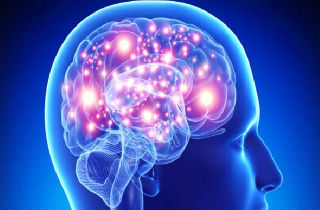Addiction and The Brain’s Reward Center
Understanding how addiction happens as a brain disease has been the subject of research for a number of years, starting primarily with alcohol and drug addiction and moving on to behavioral or process addictions, such as gambling and shopping.
Much of this research is technical and the medical language unfamiliar, but I will attempt to summarize it in layman’s terms. In essence, the brain has a reward center within the limbic system. The limbic system is the control center for emotional responses and controls the release of a chemical substance produced by the body called dopamine.
A rush of dopamine to the head
Dopamine is called a neurotransmitter because it allows signals to transmit from one nerve ending to another in the brain. Dopamine makes us feel good, even euphoric. Certain drugs produce a heightened release of dopamine, flooding the brain with an abnormal amount of this feel-good substance.
However, once the brain experiences this wash of dopamine, it attempts to balance itself, shutting off dopamine production and creating the “low” or the “crash” that comes after a “high.” Prolonged overstimulation of dopamine through drugs results in a suppression of the limbic system’s natural ability to produce dopamine. The brain can no longer produce that feel-good effect on its own. The person becomes physically addicted and, in order to feel good again, must take more and more of the drug.
Alcohol and drugs can trigger the brain to produce artificially high levels of dopamine. This is why when dopamine is not present, relapse can become more of a risk.
Personal choice can create similar dopamine release
Behavioral addictions can also create conditions in which dopamine is produced. The brain can become trained to release dopamine at the pleasure received from activities such as shopping or gambling. Further, behavioral addictions intersect with relationship dependency. Outside substances can create a pleasure response in the brain, but so can personal choices. Research has shown that,
“enhancing the effects of dopamine influences how people make life choices by affecting expectations of pleasure.” {1}
If you are a dependent person, you have a specific definition of what is pleasurable in relationships for you. Your definition of what is pleasurable can control the release of dopamine within your limbic system. Your behaviors train your brain to recognize pleasure and release dopamine. As one researcher said in a study about long-term effects of pathological gambling on the brain,
“It’s not about the brain being addicted to a substance, it’s about the brain being addicted to its own chemistry.” {2}
So, what is relationship dependency?
Relationship dependency is about the brain being addicted to its own chemistry. As a dependent person, you determine which conditions are safe, which conditions are right, and which conditions are pleasurable. When these predetermined conditions are met, your pleasure center is activated, dopamine is released, and all is right with your world.
Questions about behavioral addictions?
Do you have questions about how your brain responds to certain behaviors? Or are you worried that you may be in a cycle of addiction? Please leave your questions, comments, or story below. We’ll do our best to respond to you personally and promptly.








